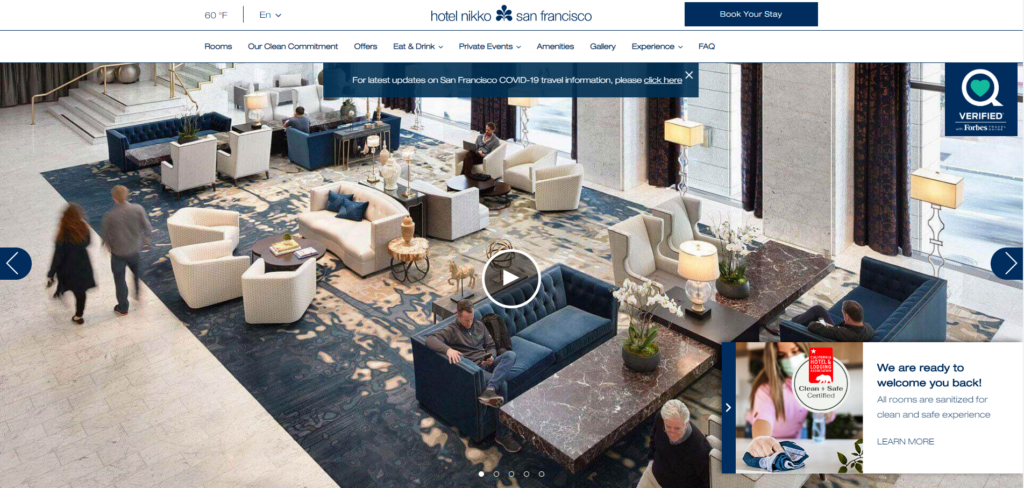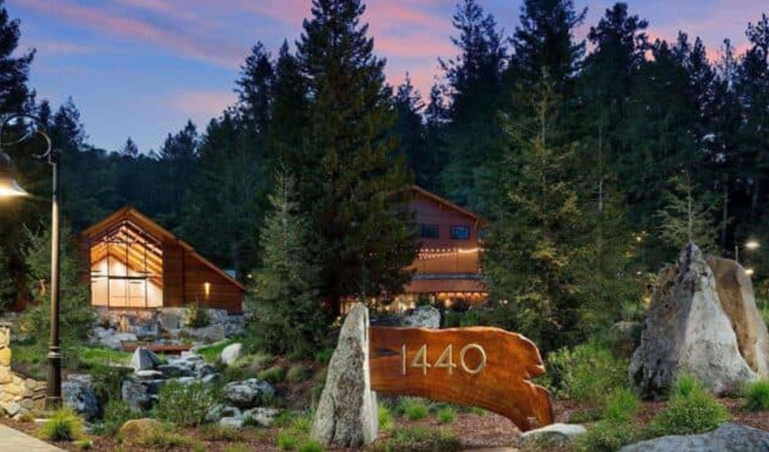The desire to travel is stronger than ever. Google reports that queries like “travel to” and “hotel booking app” have increased 100% comparing Nov 2020 to Jan 2021 against the previous year. And terms like, “Can I travel” have increased nearly 800% this past summer…which now begs the question – are you ready to capture vacationers bitten by the travel bug?
There are a few key factors required to capturing the new traveler market. And, let’s face it, brands who are fully embracing their travelers’ fears and questions are going to position themselves ahead of everyone else. As a hospitality-focused company, we recommend these tips to fully embrace the post-pandemic traveler needs:
- Be flexible.
- Be safe.
- Be there.
Be Flexible.
More than ever before, flexibility is key to capturing the anxious traveler. According to STR, as of February 2021, flexible cancellation and changes are now one of the top decision-making factors for travelers.

Prior to the pandemic, many hotel sales and revenue teams focused on increasing the booking window. In some regions that was expanding a two-week booking window into a one month. In other regions it was getting nonrefundable bookings for slow seasons in as early as possible. And, outside of “heads in beds,” many hoteliers were focused on expanding bookings for meetings, weddings, and event groups into the next year and beyond. But the pandemic changed all that. Now, with the unknown of tomorrow, flexible reservations changes are the key to winning an indecisive traveler.
Tip: Promote your flexible cancellation and change policy in your search ads. These ads show up alongside OTAs, and by touting your flexibility, you can shift share from the OTA to your website – earning you another head in the bed and eliminating commission fees.
Be Safe.
With everything we’ve experience in the last year and a half, traveling & staying safe is a priority for most guests. Brand properties have created and directed their hotels on protocols to ensure the property remains clean and safe. Independent hotels, conversely, need to create their own safety protocols, which is critical, because 84% of your hotel guests want to know about what the on-property experience will be like.
Your website is the perfect way to communicate the experience on property and the steps your team is taking to ensure guests – and employees – are staying safe. Digital pages can be changed at any time, so get something live now and keep it updated as you adjust your procedures with the changes going on around you. We know this approach works. For our clients who have utilized these Clean + Safe pages, we see improved conversion metrics from this content in comparison to the site performance overall, such as:
- 16% lift in conversion rates
- 33% increase in booking engine starts
- 57% decrease in bounce rates

Tip: When incorporating clean + safe protocol messaging on your site, consider how it impacts the guest. People do want to know what is expected of them, other guests, and employees while they’re there. For our clients, we have created a Crisis, Recovery, Growth solution that includes Safe + Clean messaging on the website and organizes the customer-centric information on a dedicated landing page. Consider organizing your content in line with how your guests interact with you: check-in, on property experience, check-out, and group functions.
Be There.
Being in the moment is something everyone can work harder at maintaining. According to Google, search has been the most consistent channel used throughout the travel planning cycle since the pandemic began, but the website is one of the most useful channels for customers to make their booking decisions.

Having an SEO-ready website can help position your brand in front of the competition throughout the customer’s journey. By providing your customer with the most current list of things to do in your location, you can stimulate demand with marketing and website copy that is current and reflects what guests can experience right now. To engage your customer further, enabling geo-personalized offers on your website can convert that local, indecisive traveler who just wants to getaway.
Tip: Over 58% of travelers now want to “escape and relax” on their next vacation. Start by defining what that audience looks like for you. It could be snowbirds, or it could be beach bums, or it could be something totally different. Focus on the audience that’s right for you, define it in your advertising campaigns, and convert them using digital marketing messaging and packages with content that speaks to their desire to escape and relax.
Key Takeaways:
In summary, empathetic marketing is what it takes to win a new-to-you customer now. Be upfront about cancellation and change policies. Clearly communicate the experience the customer will have on the property. And surface the right content to the right customer at the right time. Together these thoughtful efforts will help you succeed in reaching your goals.
- Flexibility: Be clear and upfront about your cancellation and changes policy, make sure you have this information available in all places someone can book your hotel.
- Safety: Promote your safety measures and what guests should expect when they arrive, ensure this content covers all on-property aspects for transient and group guests.
- Search: Reach the new traveler with fresh, localized content that focuses on their new concerns about travel; incorporate FAQs and Schema markup for added benefit.
If you want help to create a strategy and manage your digital marketing, we are here to help you succeed. Please send us an email at [email protected] or call us at +1 408 200 2211
Useful Resources:
2021 Hotel Strategies to Increase Traffic and Revenue
Recovering Revenue: A Tactical Guide for Hotels to Get Ahead in 2021
Top 10 Strategies for Post-Pandemic Hospitality Marketing
Ask our experts
-
What are the best practices for post-pandemic travelers?
Post-pandemic travelers are interested in two main factors: online convenience and safety. Therefore, best practices to attract these travelers incorporate the following ideas:
- Provide customers with a seamless online experience. Make sure they can find everything they need to know about your hotel or destination and the experience you offer online. This includes being able to review your rooms, read reviews and book their stay with ease.
- Let customers know clearly what they can expect from you in terms of cleanliness. People traveling today want to make sure that you have policies in place that will help them have a safe and healthy trip. They also want to know if your COVID-19 policies will disrupt any aspects of their trip, such as amenity availability and capacity restrictions. Be upfront about how you address these aspects of their trip.
Keeping these two characteristics in mind can propel your ability to attract post-pandemic travelers.
-
What trends are seen in post-pandemic traveling?
The pandemic has seen the arrival of a few key trends that businesses in the hospitality industry should familiarize themselves with.
- The drastic increase in digital engagement. Ecommerce and digital shopping as well as researching traveling accommodations and interests online had already begun to rapidly increase, but the pandemic pushed them all into overdrive. Businesses need to be fully equipped to engage the traveler digitally.
- Local travel. Particularly when traveling by plane and other forms of mass transport was discouraged travel, many people rediscovered the joy of exploring destinations closer to where they live. Although people may soon start feeling more comfortable venturing a little further, marketing should keep the value of the local tourist in mind.
- People have also adjusted slightly their reasons for travel. Many have placed a greater emphasis on traveling for fun and relaxation, even to the point of taking time during business trips for more personal enjoyment. They have also placed a greater emphasis on seeing family and friends.
- In the early days of the pandemic, many people saw some of the benefits that arose from the less frequent travel, especially in the decrease of greenhouse gas emissions. As people prepare to explore more, they have remained more conscientious of their ecological impact and want to know that the businesses they engage with care as well.
https://www.accenture.com/ch-en/blogs/travel/five-trends-shaping-tomorrows-traveller
-
How do post-pandemic travelers impact SEO?
Post-pandemic travelers are impacting SEO in a few key ways.
- They are driven by joyful experiences. The pandemic has been mentally changing for people around the globe and across all demographics. People want experiences that can help them relax and feel excited and happy.
- People are taking local excursions. The pandemic has been dominated by people traveling to destinations they can reach by car. Even as people begin venturing more into public travel destinations, think local travelers when optimizing content.
- Travelers want to know how COVID will change the travel experience and what you are doing to protect them. Let them know if anything has changed about the experience you offer and how you will keep them safe while they travel.
- The pandemic has driven everything online. Online shopping has accelerated dramatically over the past two years and this has impacted how people look for travel accommodations. Therefore, websites and digital representatives must also demonstrate that they are equipped to provide customers with a smooth experience from start to finish.
-
How do I measure success with post-pandemic travelers?
To gauge your ability to engage with post-pandemic travelers, you need to keep an eye on your key business and website metrics. Since many travelers post pandemic will likely want to engage digitally, tracking your online KPIs will be helpful, include:
- Your rankings on SERPs
- Your ratings and reviews, particularly on Google My Business
- Your traffic and engagement online
- Your bookings and conversions through your site
As the travel industry begins to recover, you will also likely find that your revenue and bookings do not quite meet your pre-pandemic positions, but you do want to track your visitors and your bookings week over week and month over month to see your progress. As you bring customers in, you can also track how they learned about your business and what platforms they used when planning their trip. This can help you further understand your position within the market.


